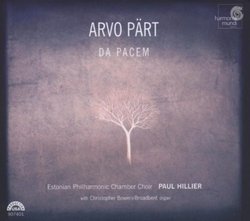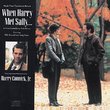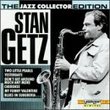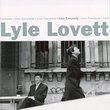| All Artists: Estonian Philharmonic Chamber Choir, Paul Hillier Title: Arvo Pärt: Da Pacem Members Wishing: 2 Total Copies: 0 Label: Harmonia Mundi Fr. Original Release Date: 1/1/2006 Re-Release Date: 9/12/2006 Album Type: Import Genre: Classical Styles: Opera & Classical Vocal, Chamber Music, Historical Periods, Classical (c.1770-1830) Number of Discs: 1 SwapaCD Credits: 1 UPC: 093046740122 |
Search - Estonian Philharmonic Chamber Choir, Paul Hillier :: Arvo Pärt: Da Pacem
 | Estonian Philharmonic Chamber Choir, Paul Hillier Arvo Pärt: Da Pacem Genre: Classical
This stunning new collection of short pieces by Arvo Pärt covers a 30 year period of the composer's output. The listener will be both comfortable with and surprised by the changes he's made: his essential style/approa... more » |
Larger Image |
CD DetailsSynopsis
Amazon.com This stunning new collection of short pieces by Arvo Pärt covers a 30 year period of the composer's output. The listener will be both comfortable with and surprised by the changes he's made: his essential style/approach and the beauty of the music remain constant, but Pärt is no whispering new-age poster boy. Sometimes the sound just washes over the listener; more often the small complexities or intensities are the hooks by which we are captivated. "Da pacem Domine" is a prayer for peace. Its different tonal hues thrill as much as they soothe. There's much of Renaissance music in his work--under the layers of sound there is a solid, far more simple core. The Two Slavonic Psalms have a Russian feel unlike most of Pärt's other works, and the first is fleet and perky. The strange "Dopo la vittoria" tells the story of St Ambrose and St Augustine singing the Te Deum composed for his defeat over the Arians; the story part is presented in an odd, chatty manner, but the prayer itself is exclaimed with great dignity. The performances, by Paul Hillier, the Estonian Philharmonic Chamber Choir, and organist Christopher Bowers-Broadbent, do Pärt's ethereal, still, but ever-moving music absolute justice, and the recorded sound is crystal clear. --Robert Levine Similar CDs
Similarly Requested CDs
|
CD ReviewsTranscendental Purity meets Slavonic Psalms Mastery ProgDog | 11/22/2006 (5 out of 5 stars) "Many things have been said about Arvo Part. Nevertheless, I will venture some words about this CD. Part's compositions evoke a meditative, deeply thoughtful atmosphere. When I played this CD for the first time, my visceral reaction was to close my eyes and let the sound "heal" those niches in my soul that Part has boldly decided to explore in himself. Not for the faint of heart, this living composer's work will challenge your views of sacred and traditional musics. Part's personal approach to creating music can almost make you blush in sorrowful, joyous, melancholic self-awareness. To say this music "speaks" is a trivial understatement. While Part is well into his seventies, his vitality and vigour musically can be compared to the controlled power of a wise giant. No signs of vanity are in his music. This is music written from a place of simple humbleness. That may be the single reason why this music is so glorious. The "Estonian Master" maintains his well-established stride in this most satisfying production. Kudos to Harmoni Mundi for the SACD/CD format. The sound is open and full. Highly recommended and perfect as a Christmas gift for the music enthusiast." Arvo Part Inspirational Jacob D. Salzer | 05/12/2007 (5 out of 5 stars) "Arvo Part is one of my favorite composers of all time. This cd is absolutely phenomenal and brings with it a deep feeling of reverence, devotion and peace. This is by far one of the most amazing cds i have ever purchased. He is an true inspiration. peace. jacob salzer" A voice teacher and earlly music fan George Peabody | Planet Earth | 05/16/2009 (5 out of 5 stars) "CONCERNING PART'S MUSIC: IS IT THAT THE MUSIC'S RELIGIOUS ESSENCE CONTENT,TOUCH AND CONSOLE US? OR: IS IT THE WORDS THAT CREATE THE SOULFUL MOOD AND NOT THE ABSTRACT SOUND OF THE MUSIC ITSELF?
This collection of shorter sacred works by Arvo Part(b.1935)includes some of his newest works as well as a sprinkling of works from earlier in his career. While some of the newer pieces demonstrate a more colorful and nuanced approach to the setting of texts to music, the influence of early music on his style is a constant presence and returns with renewed strength in these recent compositions. On this first-rate release Paul Hillier offers us a new version of works he has recorded before such as'Magnificat' and 'An den Wassern zu Babel'. Among the most recent works, the title track 'DA PACEM DOMINE'(Give us peace in our time)2004, is as near-perfect an evocation of text as the composer has ever achieved, and as is usual with Part he does this via more subtle techniques. This includes almost total subordination of rhythmic influence and the relegation of the melody to a more or less implied prescense. He thus forms both his framework and expressive fabric from the most elemental materials such as: sonority, voicing and rudimentary harmonies. In this work each pitch is carefully placed in its position; the overall impression is one of austerity and stillness. It is in his choral works that we encounter his brand of mysticism, with the resonant voices conveying a nearly medieval quality of spiritual awe. This diverse mixture of new and old pieces show a suprisingly diverse range with Part's familiar and sonorous style. The "SALVE REGINA" 2001-2 (Hail Queen) is a highly emotional and sentimental work and thus stands out in Part's composition. The first of Part's "TWO SLAVONIC PSALMS" 1984 which is 'Psalm 117' includes an almost dance-like rhythm that is quite untypical of Part's music. This music was his first setting of a Russian Orthodox text". There is no doubt in my mind that the "MAGNIFICAT" 1989 is the lovliest and and most magnificent of Part's music. With its delicate contrasts between the various groups of textured voices, it is captivating. "DOPO LA VITTORIA" (1996-98) opens and closes with exuberant cheerful strains. "AN DEN WASSERN ZU BABEL" is one of the earliest 'tintinnabuli' pieces from the mid 1970's. The title refers us to Psalm 137: 'By the waters of Babylon we sat down and wept.' "NUNC DIMITTIS" was written in 2001 to a setting in Latin of the 'Nunc dimittis', the words of Simeon, an old man, who holds the baby Jesus in his arms, and recognizes him as the Son of God. The program closes with the meditative "LITTLEMORE TRACTUS" 2000, and when Chrisopher Bowers-Broadbent joins in with the organ, you will think that you have died and gone to heaven! There are many worthy moments and hightlights in Part's music just waiting for the listener to discover. No matter how many times you hear his compositions, each time you are somehow lifted beyond an expected esthetic experience to a more spiritual plane, whether you want to be or not. Other composers such as John Tavener have attempted to achieve this kind of spirituality, but each of us must determine if anyone else quite reaches the esoteric level of Arvo Part. As to the performance of the Estonian Philharmonic Chamber Choir, under the direction of Paul Hillier: it was superb, skillful and reached, in my opinion, a new level of excellence. The packaging is attractive with detailed liner notes in Latin, French, German and English. " |

 Track Listings (9) - Disc #1
Track Listings (9) - Disc #1




![Digital Duke [Ellington]](https://nationalbookswap.com/cd//m/48/8148/138148.jpg)




